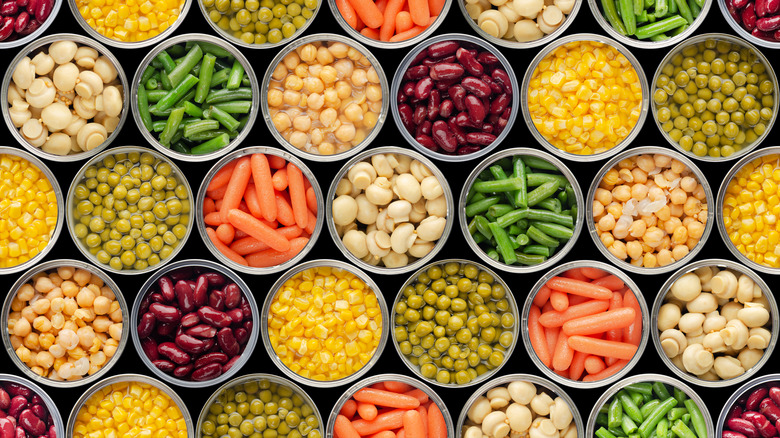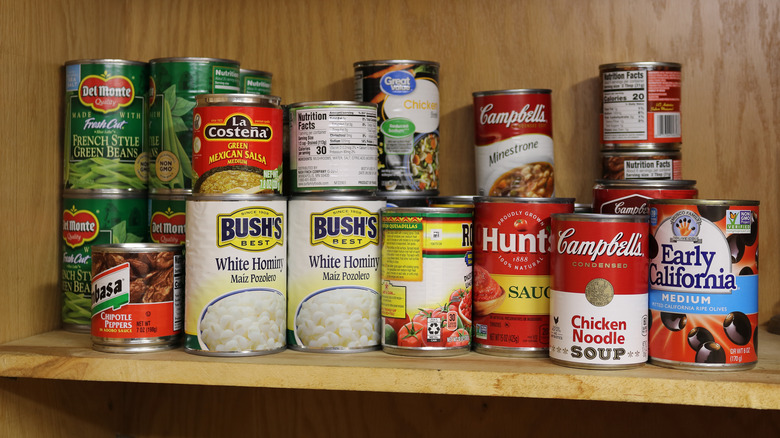The Canned Food Myth That You No Longer Have To Be Salty About
The food canning process as we know it today got its start in 1795 when famed military commander Napoleon Bonaparte offered a 12,000-franc reward to the person who could develop a reliable preservation method for food. While it took him 14 years, inventor Nicolas Appert eventually made good on the challenge. Appert's process involved placing food into a sealed can or jar and heating the exterior, which effectively killed existing germs while preventing new ones from making their way inside.
Over two centuries later, canned foods remain a staple of kitchens and pantries all over the world. Canning can preserve all sorts of food, from meats to vegetables. Canning also ensures that foods have an extended lifespan, with properly treated items lasting many years without issue. Despite the many benefits offered by canning, a lot of misinformation still surrounds canned goods. One common myth has to do with the sodium content of these items, as the purpose of adding salt to canned items is often misunderstood.
When it comes to canned foods, sodium is not always required
While salt is often a part of the canning process, it's not always necessary for preservation. In fact, salt is mostly added to canned foods to enhance their taste, not to ensure they remain safe and palatable on your shelf. Meats, vegetables, and seafood don't actually require salt during the canning process, and certain types of high-fat meats (like bacon) can actually degrade at a faster pace when salt is added. The exception is canned fermented goods, like sauerkraut, which require salt to prevent the growth of harmful bacteria.
Because sodium is not essential to preserve food, many manufacturers reduce the salt content in their products. It's possible to find lots of canned goods that are either low or no salt, which ensures you can maintain your sodium-free lifestyle. And if a canned good does include salt, draining and rinsing the food will greatly reduce its overall salt content. While high sodium intake is perhaps the most pervasive canned food myth, it's certainly not the only one.
Other canned food myths to kick out of your life (and pantry)
Lots of people claim that fresh fruits, vegetables, and meats are better sources of nutrients as compared to canned preparations. The truth is that foods are canned immediately after being harvested, which retains their inherent nutrients and ensures they remain healthy and wholesome when opened. In some instances, canning actually increases the nutritional content of food. Take tomatoes, for instance, which have more lycopene canned than they do fresh. That means eating more canned tomatoes may help reduce your risk of serious diseases, including cancer (via Hy-Vee).
Some people also misunderstand the purpose of use-by or sell-by dates printed on canned items. Most canned foods are good for a year or more, regardless of the date on the can. When it comes to food with a high acid content, such as pickles, they can be kept for about a year while still ensuring quality. As for low-acid foods, such as meats, they're usually good for about two to five years. Regardless of the date, there are certain signs that indicate canned food has gone bad. Rusted or bulging cans, for example, should be discarded and replaced in your pantry, as they may harbor hazardous bacteria.


